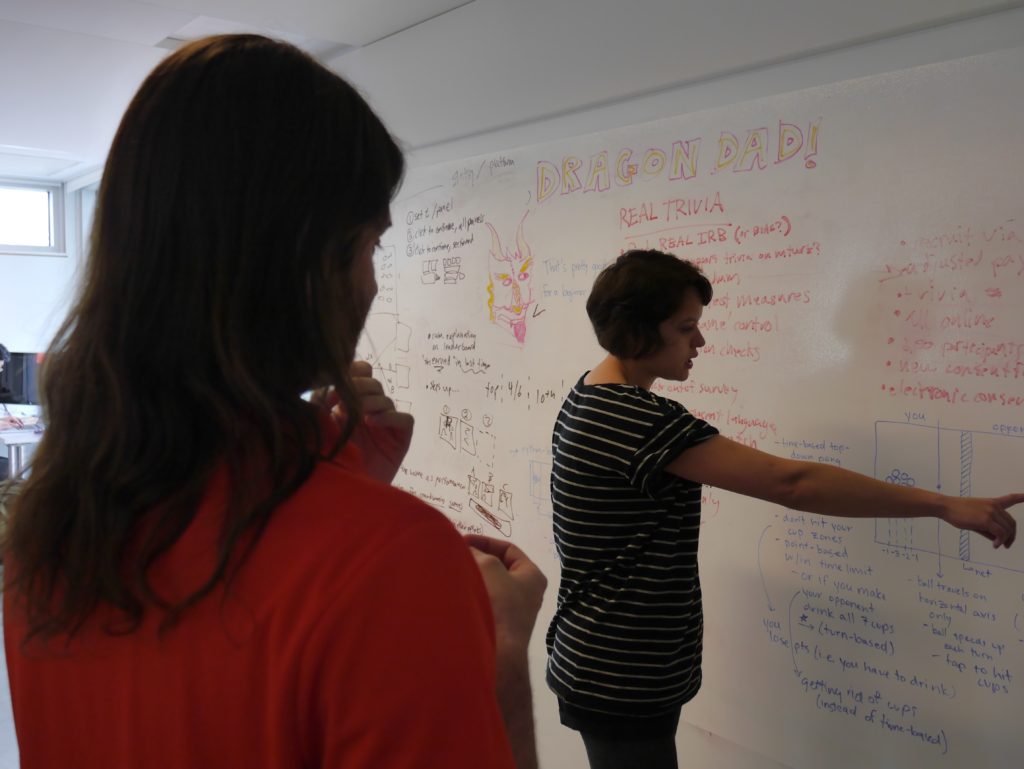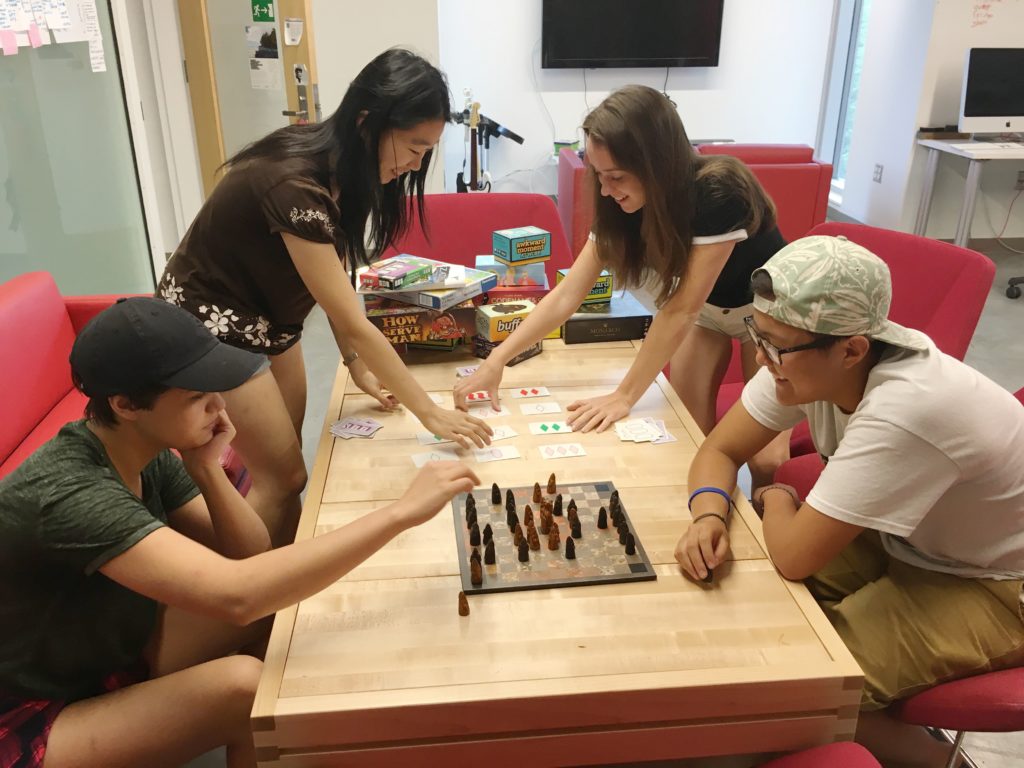
Bineshii Hermes-Roach ’17 has had Tiltfactor on her radar since she arrived at Dartmouth. “During my freshman fall, I spoke with Max Seidman (a senior Tiltfactor game designer) at the activities fair and always kept Tiltfactor in the back of my mind, hoping one day I could involve myself with the lab.”

Bineshii explains that in the winter of her sophomore year she decided to take an off term and, after applying to work at Tiltfactor, receive a part-time position for game design that she kept through the spring. This past summer, for Dartmouth’s heralded Sophomore Summer, Bineshii applied for and was granted a summer game design fellowship at Tiltfactor.
Bineshii says that she came in with some knowledge of designing games, but that she has learned much during her time at the Tiltfactor Lab. “I was somewhat familiar with Adobe software before starting work at Tiltfactor, but working here has strengthened my abilities in Photoshop and Illustrator,” she says.

Over the course of the summer term, Tilt game designer Max also guided Bineshii’s understanding of using Unity, the game building software. After familiarizing herself with the program, Bineshii worked on Ship Happens, a bystander intervention game created at Tiltfactor. In addition to developing the game, she also created animations and art for it. “I had no prior experience creating digital animations, but I’ve had to do that for Ship Happens, so now I have experience animating. Working on Ship Happens in Unity has also given me skills working with Github,” which is commonly taught in programming classes but not often in Studio Art, she explains.

During the summer term, she also helped to design the digital game Crowded Dungeon and provided assistance with a Cops Arrest Manatees study about climate change. If Hermes-Roach sounded busy, she was—but she is quick to tout the positive environment of the lab. “I honestly enjoy every day working at Tiltfactor. I enjoy the comfortable and relaxed feeling of the lab, and I’ve also made great relationships with my coworkers.” Bineshii names every Thursday as s a weekly highlight, when the entire team meets and plays games together.
Her long-term goals at Tiltfactor reflect the overall purpose of the lab itself. “Our games aim to change the way people think about many social issues such as bystander intervention, climate change, and prejudice,” she says. “I really enjoy making games, but the unique thing about Tiltfactor is that these games have the ability to have social impact. I’m hoping to impact all kinds of people with our games—even those who have little experience playing.”

